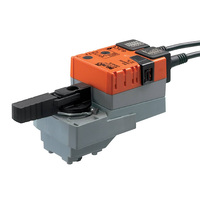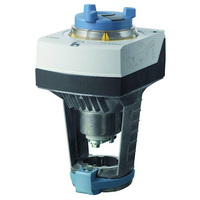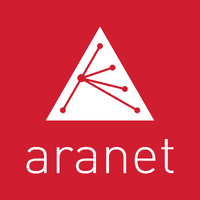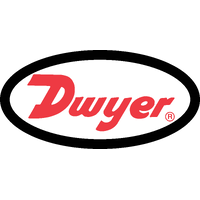Smart HVAC Controllers for Commercial Use: Top Solutions for Energy Efficiency
Smart HVAC controllers for commercial use are increasingly vital in commercial settings and often rely on reliable accessories like the MR60 Battery Lead 10A for dependable power connections. They provide enhanced energy efficiency, cost savings, and improved comfort. These systems leverage advanced technology to optimise heating, ventilation, and air conditioning, addressing the significant energy consumption typical of commercial buildings.
What are the Benefits of Smart HVAC Controllers?
Smart HVAC controllers offer a range of advantages that enhance energy efficiency, comfort, and overall system performance in commercial buildings. Here are the key benefits:
- Enhanced Energy Efficiency: Commercial HVAC control systems optimise energy use through real-time adjustments based on occupancy and environmental conditions, achieving energy savings of up to 20% or more than traditional systems.
- Improved Comfort and Productivity: These systems maintain precise temperature control, adapting to user preferences and ensuring a comfortable environment that can boost workplace productivity.
- Extended Lifespan of HVAC Systems: Predictive maintenance features monitor system performance and alert users to potential issues, helping to prolong equipment lifespan and reduce repair costs.
- Increased Security with Remote Monitoring: Remote access allows building managers to monitor HVAC operations in real time, enhancing security with alerts for unusual activities.
- Cost Reduction through Optimized Energy Consumption: Intelligent HVAC systems significantly lower utility bills by adjusting operations around peak energy usage times, providing financial benefits over time.
Smart HVAC controllers are integral to modernising heating and cooling systems in commercial buildings. They enhance energy efficiency and comfort and extend the lifespan of equipment while providing cost savings and improved security through advanced monitoring capabilities.
Types of Smart HVAC Controllers
Smart HVAC controllers come in various types, each offering unique features to enhance energy efficiency and user convenience:
- Wi-Fi-enabled thermostats allow remote access and control via smartphones or tablets, enabling users to adjust settings from anywhere.
- Smart Thermostats with Built-in Sensors: Equipped with sensors for monitoring temperature and humidity, these thermostats can optimise indoor climate based on real-time conditions
- Integrated Building Management Systems (BMS): These systems provide comprehensive control over HVAC, lighting, and other building systems, facilitating centralised management for extensive facilities.
- Cloud-based HVAC Controllers: These controllers utilise cloud technology to enhance performance tracking and energy management by offering real-time monitoring and analytics.
- Voice-controlled thermostats: These thermostats are compatible with Google Assistant and Amazon Alexa, enabling hands-free operation through voice commands, making home automation convenient.
Key Features of Smart HVAC Controllers
Here are the key features of Smart HVAC controllers.
- Energy Efficiency Features: Smart HVAC controllers offer advanced scheduling and geofencing capabilities to optimise energy consumption based on user patterns and occupancy.
- Remote Control and Monitoring: Users can control HVAC systems remotely via mobile apps, allowing adjustments from anywhere and enhancing convenience and energy management.
- Advanced Sensors: Equipped with sensors for temperature, humidity, and air quality monitoring, these systems gather real-time data to ensure optimal indoor conditions.
- Integration with Smart Devices: Smart HVAC systems can seamlessly integrate with other smart home devices, enabling coordinated control for improved efficiency.
- Customisable Features: Users can customise commercial HVAC control settings to meet specific comfort needs, utilising features like learning algorithms that adapt to individual preferences over time.
Final Wrap
Smart HVAC controllers are a crucial component of energy-efficient commercial buildings. They offer a range of benefits, including energy efficiency, comfort, and security. Various smart HVAC controllers are available, each with unique features and benefits. Building management systems (BMS) offer comprehensive control and monitoring of HVAC systems. Implementing smart HVAC controllers requires careful planning and execution but offers long-term benefits and savings.
FAQ
How do Smart HVAC Controllers improve energy efficiency?
They utilise real-time data from sensors to adjust heating and cooling based on occupancy and environmental conditions, potentially saving up to 20% on energy costs compared to traditional systems.
What types of Smart HVAC Controllers are available?
Common types include Wi-Fi-enabled thermostats, smart thermostats with built-in sensors, integrated building management systems (BMS), cloud-based controllers, and voice-controlled thermostats
Can Smart HVAC Controllers be monitored remotely?
Yes, many innovative HVAC systems offer remote monitoring capabilities, allowing facility managers to control and adjust settings via mobile apps from anywhere
What are the key features of Smart HVAC Controllers?
Key features include advanced scheduling, geofencing, remote control, integration with other smart devices, and customisable settings that adapt to user preferences
Do Smart HVAC Controllers require unique installation?
While some systems can be easily installed by users, others may require professional installation for optimal integration with existing building systems
Leave a comment
Popular Posts

What Is A Solenoid Valve?

How Does a Belimo Actuator Work?

Linear Actuator Uses: Applications in Various Industries






























